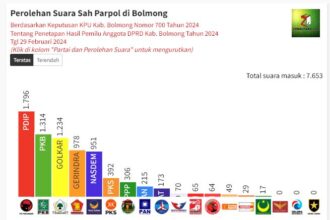ZONAUTARA.com – Navigating the world of car insurance quotes can be a daunting task for anyone. With so many options, providers, and fine print, it can be easy to feel overwhelmed and trapped in a policy that isn’t right for you.
This article aims to provide a comprehensive guide to understanding car insurance quotes, helping you make informed decisions and avoid common pitfalls.
1. Know the Basics: Types of Coverage
Before diving into car insurance quotes, it’s crucial to understand the basic types of coverage:
a. Liability coverage: Mandatory in most states, this covers bodily injury and property damage that you cause to others in an accident.
b. Collision coverage: Covers the cost of repairing or replacing your car after an accident.
c. Comprehensive coverage: Protects your car from non-collision events like theft, vandalism, natural disasters, and more.
d. Uninsured/Underinsured Motorist coverage: Protects you in case you’re in an accident with someone who doesn’t have adequate insurance.
e. Medical Payments coverage/Personal Injury Protection (PIP): Covers medical expenses for you and your passengers after an accident, regardless of who is at fault.
2. Compare Multiple Quotes
Don’t settle for the first quote you receive. Compare quotes from multiple insurance providers to ensure you’re getting the best deal.
Keep in mind that the cheapest option isn’t always the best; focus on finding a balance between cost and coverage that suits your needs.
3. Understand Deductibles and Premiums
A deductible is the amount you pay out of pocket before your insurance kicks in. A higher deductible generally means lower premiums, but it also means more financial responsibility in the event of a claim. Make sure you can afford your deductible and that it makes sense for your financial situation.
Premiums are the monthly or annual payments you make to maintain your insurance coverage. When comparing quotes, ensure you’re comparing similar deductibles and coverage levels to make an accurate comparison.
4. Look for Discounts
Many insurance companies offer discounts for various reasons, such as safe driving records, bundling multiple policies, or even being a student. Be sure to inquire about available discounts when comparing quotes to find the best possible deal.
5. Assess the Insurer’s Reputation
Research the insurance company’s reputation for customer service, claims processing, and financial stability. Check online reviews, consumer reports, and financial ratings to ensure you’re dealing with a reputable provider.
6. Read the Fine Print
Carefully review the terms and conditions of each policy before making a decision. Look for any exclusions, limitations, or conditions that may impact your coverage. If you’re unsure about any aspect of the policy, don’t hesitate to ask the insurance agent for clarification.
7. Consult an Independent Agent
If you’re still feeling overwhelmed or unsure about your options, consider consulting an independent insurance agent. They can help you navigate the complexities of car insurance quotes and find a policy that fits your needs and budget.
Conclusion
Understanding car insurance quotes is essential for making informed decisions and avoiding costly traps. By familiarizing yourself with the different types of coverage, comparing multiple quotes, and thoroughly assessing each policy, you can confidently choose the right car insurance for your needs.
Don’t be afraid to ask questions or consult a professional if you need assistance in this process.








